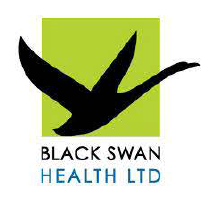
Australia is on the precipice of radical mental health reform and informal mental health carers (family/friends of people living with mental illness) seek the opportunity to be part of that change process. Carers could play an important role in reform, but to do so the mental health ecosystem needs to firstly recognise the role they play in recovery. Then, we need to actively address the stigma and discrimination associated with mental health carers; to invest in carer wellbeing; and to listen, validate, and embrace carer contributions fully.
I didn’t realise I was a carer until I read a job advertisement for a Carer Consultant position for a government agency in 2016. As I read the job criteria, I was intrigued to find I fit the definition: all I needed was experience of providing support to a person living with a mental illness.
Carers see themselves relationally. I thought of myself as a mother, a wife and a daughter-in-law. Often carers think of themselves as fulfilling their relational role to the person living with a mental illness or experiencing mental distress, not as a ‘carer’.
I walked through over 10 years of complex trauma with my family without support or any understanding of what was happening to us, even though I was knocking on every door I could to be informed.
I didn’t know I was a carer, and neither do the growing number of Australians affected by mental distress due to floods, fires, the pandemic, job losses and travel restrictions. Like me, they struggle on unsupported. They do not realise their whole family could recover and be transformed through engagement with support services and psychosocial education.
Supports may be offered to people who see themselves as ‘carers’, but governments and service providers assume that family and friends of people living with a mental illness will find them and be able to access them. We need to let them know that many carers do not see themselves as carers. So, if identifying as a carer is a pre-requisite, how are they going to get the help that they need?
Carers don’t have a job description because their role is constantly shifting. They are often expected to daily perform tasks like cooking, cleaning, supervising, running errands, liaising with medical teams and advocating for their loved one. Their interactions with medical teams are inconsistent: one day they are included and the next excluded. They are often on call 24/7 and expected to drop everything to respond to requests to transport to appointments or pick up because of discharge. They lose sleep, friends, the opportunity to earn income and to socialise, and they daily walk on eggshells. They have no sick leave entitlements.
Carers are constantly engaged. Even when they are not physically present, they are present emotionally and mentally. Their level of care may shift, but their sense of responsibility never does. And it is the combination of all this responsibility and expectation that is causing carers distress and affecting their physical and mental wellbeing. Carer exhaustion has also increased because of the COVID-19 pandemic and lockdowns.
This labour is not often recognised or financially rewarded, but informal carers’ work saves the community $14.3 billion per year.
Recent changes to funded carer respite is increasing their burden, with the message of ‘do more self-care’ resonating in their ears as if that was the panacea for their physical and emotional exhaustion.
Mental health carers desperately need help to make respite a reality. Help that used to be available to them through the Commonwealth Respite Centre, but has morphed into the Carer Gateway, which is failing to deliver the outcomes required for mental health carers.
In our broader mental health ecosystem we all have a part to play in shifting the landscape for carers and it starts with a conversation around language and communication.
So, to do so, please ask yourself some questions:
- Do I have a suggestion as to a more appropriate title for carers so that the broader community can be better engaged?
- How can I embrace carers into the work that I am doing to address stigma and discrimination?
- How can I respond positively to carers requests for support or information?
- How can I help governments to prioritise funded flexible carer respite to address or prevent distress and burn out for mental health carers?
And when you hear the solutions surfacing within you, act. Share your ideas. Invite collaboration and partnership with mental health carers in the community. Hear their stories. Accept their wisdom. Engage with curiosity and maybe we will have a chance to improve or even save lives together.
Hayley Solich
Carer Co-Chair, National Mental Health Consumer and Carer Forum (NMHCCF)
Submission to Senate inquiry into Purpose, Intent and Adequacy of Disability Support Pension
In our submission to this inquiry, Mental Health Australia outlined the importance of the Disability Support Pension as a component of a fair social security system, and the need to recognise the right of people with disability to an adequate standard of living, and participation in employment and community life. This is particularly important for people with primary psychosocial disability who make up the largest cohort of people receiving DSP, but face significant barriers to proving eligibility for the payment.
Mental Health Australia has called on the Australian Government to implement the recommendations of previous inquiries to improve income support for people with disability, including providing support to complete applications, increasing the number of hours DSP recipients can work without losing eligibility, and independent review and regular indexation to keep payment rates in line with reasonable costs of living.
Mental Health Australia Job Vacancies - Embrace Project
The Embrace Multicultural Mental Health Project is looking for two new staff to continue its work in providing a national focus on mental health and suicide prevention for people from culturally and linguistically diverse (CALD) backgrounds. You can follow the links below for more information on the two roles.
Embrace Project Manager – Delivery, Policy & Governance
Embrace Project Officer
The closing date for applications is 19 July.
|
On Monday we’ll be dialling into the AIHW Sector Briefing on their suicide and self-harm monitoring website (data updates, new ambulance attendance data and international estimates data) and attending a focus group meeting for the Headspace Evaluation.
On Tuesday we’ll be meeting with the Culturally and Linguistically Diverse Communities COVID-19 Health Advisory Group as well as having a planning meeting for World Mental Health Day and attending a showcase for the Future of Disaster Recovery and Resilience Project.
On Thursday we’ll be holding a webinar with members to discuss our Advice to Governments in relation to the National Agreement for Mental Health and Suicide Prevention, as well as a meeting with ALIVE the National Research Translation Centre for Mental Health.
And on Friday we’ll be attending the National Disability and Carer Alliance monthly meeting.
|
|
Member Benefits, Jobs and Profiles
|
|
|
|
Communicate your news, job vacancies, or upcoming events to more than 5,000 people in the mental health ecosystem weekly.
Mental Health Australia members are invited to send us news, announcements, job vacancies, events or other notices for inclusion in the Weekly CEO Update newsletter. To do so, simply fill out this form by COB each Wednesday for your notice to appear in the newsletter the following Friday.
Job opportunities
OzHelp, is a highly regarded not-for-profit organisation based in Canberra with a total of 26 staff. They are a leading provider of wellbeing programs nationally and specialise in mental health and suicide prevention.
The company is seeking a passionate Chief Operating Officer to join the team, find more information about the role, or please contact HorizonOne Recruitment.
OzHelp is also seeking someone who can establish and build constructive relationships with key contacts within the government, opposition, advisors, and with other policy thought leaders as their new Government Relations Manager. If this sounds like the position for you, apply now via HorizonOne Recruitment.
Member Profiles

Mental Health Council of Tasmania
The Mental Health Council of Tasmania (MHCT) is the peak body for community managed mental health services in Tasmania. We represent and promote the interests of our Members and work closely with Tasmanian Government agencies and Primary Health Tasmania to ensure sectoral input into public policies and programs. We have a strong commitment to enabling better mental health care access and outcomes for every Tasmanian. Our purpose is to improve mental health for all Tasmanians, and our vision is for all Tasmanians to have awareness of, and value, their mental health and wellbeing.

Black Swan Health
Black Swan Health was established in 2014 as an independent not-for-profit company limited by guarantee. Its primary focus is the provision of high quality primary and mental health services that achieve positive health outcomes for the community.
|
|
|
Embrace Multicultural Mental Health News
|
COVID-19 is not a western Sydney problem
An emerging narrative typifying COVID-19 as a ‘western Sydney problem’ is undermining the pressing need for collaborative action to solve the evolving crisis in NSW, according to community organisation and social business, Settlement Services International. Rhetoric has drawn a link between the increase in COVID-19 cases in south-west Sydney and the culturally and linguistically diverse (CALD) demographics of these areas. SSI – which works extensively with migrant and refugee communities and its member migrant resource centres – has seen high rates of compliance with COVID-19 safety protocols and a strong desire for information and engagement on this critical issue.

|
Experts assemble to support student mental health
Teachers will now have access to the highest quality mental health professional development courses to help them recognise and refer students to the help they need, when they need it. The NSW Government is assembling a panel of some of Australia’s leading experts in mental health to provide ongoing guidance and feedback around NESA-accredited mental health professional development courses for teachers.
Read more
Disability Reform Ministers’ Meeting
Minister for the National Disability Insurance Scheme, Linda Reynolds, says: “I thank all my state and territory ministerial colleagues for their ongoing engagement and commitment to disability policy reform. I also thank the NDIA and its Independent Advisory Committee for their work and advice in the lead up to today’s meeting. I’m grateful to the many participants, and the peak bodies who have spoken with me over the past three months to provide me with a greater understanding of their perspectives and experiences… 450,000 NDIS participants, their families and support workers are counting on us to get the NDIS right so the scheme is the best it can be and is sustainable for many generations to come.”
Read more
NSW COVID-19 Support Package
Under a new combined support package, the COVID-19 Disaster Payment will be further expanded and increased. The Commonwealth and NSW will also enter into a new 50/50 cost sharing arrangement for a new business support payment to be implemented and administered by NSW. From week four of a lockdown because of a Commonwealth Government declared hotspot, the COVID-19 Disaster Payment will increase to $600 if a person has lost 20 or more hours of work a week or $375 if a person has lost between 8 and less than 20 hours of work a week. The Commonwealth and NSW have also agreed that from 18 July 2021 the COVID-19 Commonwealth Disaster Payment will be available to those outside Commonwealth declared hotspots in NSW that meet the criteria for the payment.
Read more
Lockdown Lifeline - Mental Health Support package for NSW
People in mandatory isolation will have access to around the clock wellbeing and mental health support and there will be increased access to services for parents, young people and multicultural communities who are struggling during the lockdown. As part of a joint Commonwealth and NSW Government package worth $17.35 million, NSW will provide $5.1m for a range of mental health services across NSW.
Read more
COVID-19 Mental Health Boost for New South Wales
The Australian Government is providing an additional $12.25 million to ensure the people of NSW, particularly those in Greater Sydney, can access urgent mental health support during this difficult time. This funding complements the $5.15 million to be provided by the NSW Government to boost mental health services that was also announced today. Taken together this package will boost existing crisis and mental health services and provide additional support to young Australians, those currently in isolation and to culturally and linguistically diverse (CALD) communities.
Read more
New website to improve evidence base on Indigenous mental health and suicide prevention
The Australian Institute of Health and Welfare (AIHW) has today released a new website, the Indigenous Mental Health and Suicide Prevention Clearinghouse. Established in response to the Fifth National Mental Health and Suicide Prevention Plan, the Clearinghouse is a repository of up-to-date information about Aboriginal and Torres Strait Islander peoples’ wellbeing, mental health and suicide prevention. The Clearinghouse was developed in consultation with experts in Indigenous mental health and suicide prevention, practitioners and policy makers.
Read more
|
|
|
See the 2021 RRMH program
Gain practical solutions to improve mental health services in Australia’s rural and remote areas at the Australian Rural & Remote Mental Health Symposium. It will take place in Canberra and be available virtually 3-5 November. Find the RRMH program here.
DHSCC UPDATE: COVID-19 Vaccine Provider Alert
The Department of Health has issued the next COVID-19 vaccination – Disability Provider Alert 12 July 2021. This provider alert along with other resources and information about the COVID-19 vaccine rollout is available from a dedicated web page for disability service providers on the Department of Health website.
Out from the Mist
Out From The Mist is a photography and short movie competition inviting entries on your experiences of mental health. Amateur and professional filmmakers and photographers will be able to showcase their work in front of award-winning professionals. Head to outfromthemist.com to submit your entry. The competition closes on September 24, 2021.
|
| |







